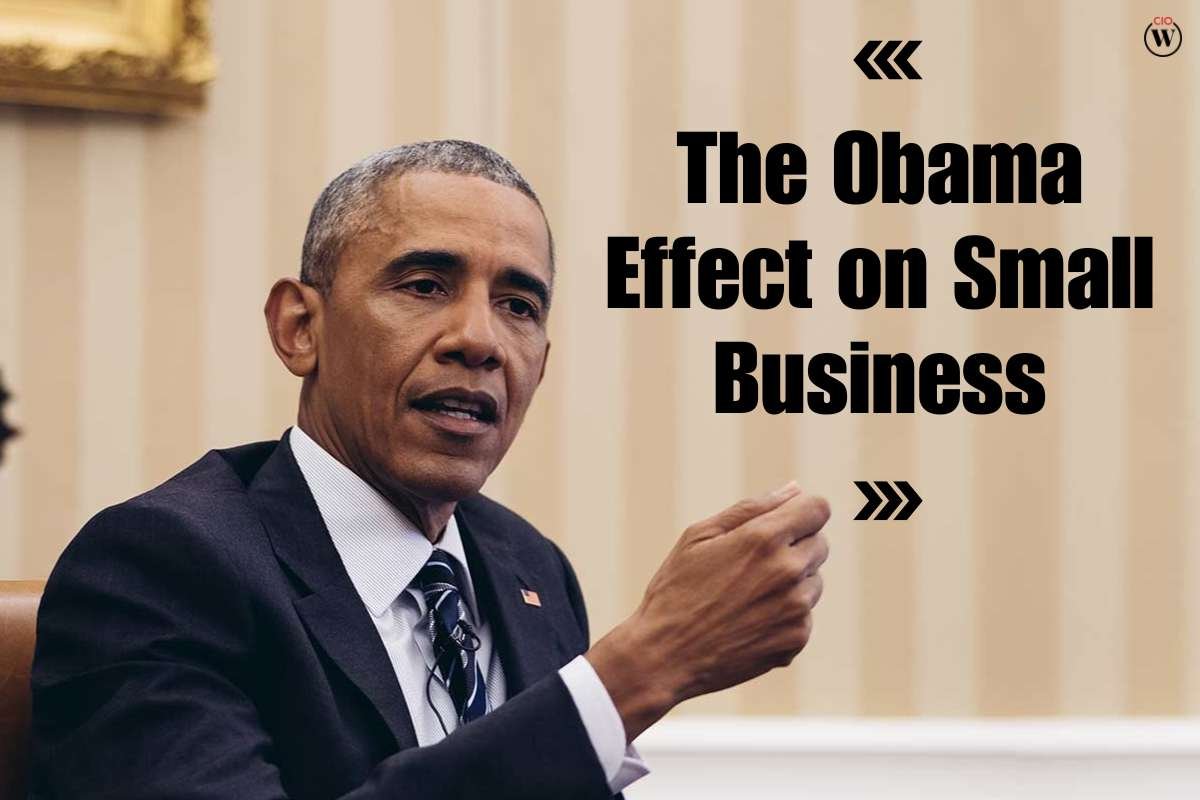From 2009 to 2017, Barack Obama was the 44th President of the United States. He spent two terms as president. Throughout his time in office, President Obama enacted measures with the goals of promoting economic expansion and expanding employment opportunities for all Americans, including those who owned small businesses. In the next article, we will investigate how the policies and practices of Obama Effect on Small Businesses of a nation.
Here is how Obama Effect on Small Businesses;
1. Small Business Administration
The role of the Small Business Administration (SBA) in the provision of financial assistance and resources to small enterprises was an extremely important one under the presidency of Barack Obama. With several credit programs of the Obama Effect on Small Businesses, such as the 7(a) loan program, which offered small firms loans of up to $5 million, the Small Business Administration (SBA) assisted small enterprises in gaining access to capital. In addition, the SBA offered counseling and training services to assist small companies negotiate the intricacies of operating a company, such as marketing, accounting, and legal compliance. These services were made available to support small businesses.
2. Healthcare Reform
The Patient Protection and Affordable Care Act (ACA) was one of the most important programs that was enacted under the Obama Effect on Small Business (ACA). The Affordable Care Act, more often referred to as Obamacare, had the objective of expanding people’s access to medical care in the United States. This included the owners of small businesses and the people who worked for them.

In accordance with the Affordable Care Act (ACA), it was not mandatory for small firms with fewer than fifty employees to provide their workers with health insurance coverage. The Affordable Care Act, on the other hand, offered tax incentives to small firms that offered their workers healthcare coverage and met certain requirements. Tax credits were devised with the intention of assisting in offsetting the expenses of providing healthcare and making it more accessible for firms of a smaller scale.
3. Tax Policies
Under the presidency of Barack Obama, new tax laws were enacted with the intention of providing assistance to locally owned and operated companies. The Small Business Jobs Act of 2010 offered tax advantages for small firms, one of which was a provision that permitted businesses to deduct up to $500,000 of the cost of capital investments such as property and equipment. The legislation also encouraged small firms to recruit additional workers by providing financial incentives, and it granted tax credits to investors to encourage them to make financial investments in small enterprises.
4. Trade Policies
The trade policies of the Obama Effect on Small Businesses seek to expand the chances for small enterprises to participate in international commerce. The Trans-Pacific Partnership (TPP) was a trade deal that was negotiated by the Obama administration. The primary objective of the TPP was to lower trade barriers between the nations of the Asia-Pacific area and the United States. There were elements in the deal that would have lowered tariffs and increased access to new markets, both of which would have been beneficial to smaller enterprises. Nevertheless, Congress did not ratify the TPP before it expired.
5. Regulatory Policies
During the time that Barack Obama was in office, regulatory regulations were put into place with the intention of safeguarding consumers and encouraging equitable competition in the marketplace. The Dodd-Frank Wall Street Reform and Consumer Protection Act was passed in 2010 and signed into law with the intention of regulating the banking and financial sector in order to avoid another financial catastrophe from occurring.

The legislation featured measures that protected customers from predatory lending practices and enhanced openness in the financial system. Specifically, the act safeguarded consumers against predatory lending practices. Although the legislation did not single out small companies as its primary focus, its primary objective was to foster a more stable economic climate, which, in the long term, may be of advantage to small enterprises.
6. Infrastructure Expenditure
Under the Obama Effect on Small Business, there was an increase in spending on infrastructure as part of an attempt to jumpstart economic development and provide new employment opportunities. The American Recovery and Reinvestment Act of 2009 allocated funds for various infrastructure projects, including the building and repair of roads, the renovation of water and sewage systems, and the development of renewable energy projects. These initiatives resulted in the creation of employment and opened doors of opportunity for small enterprises operating in the construction and energy sectors.
7. Impact on Small Businesses
The policies that were put into place under the Obama administration had repercussions for small companies that were both favorable and harmful. Access to finance and training services, both of which may be vital for a company’s development and success, was made easier for small companies as a result of the increased funds and resources supplied by the SBA. Small companies received relief from the tax policies that were introduced by the Obama administration, and investment in small firms was encouraged as a result of those policies. Access to medical care, which was made possible by the Affordable Care Act (ACA), was extended to the owners of small businesses as well as the workers employed by such businesses.

On the other hand, the extra rules imposed by the Dodd-Frank Wall Street Reform and Consumer Protection Act may have made some smaller firms feel as if they were being overburdened. In addition, Congress did not ratify the TPP, which would have potentially boosted the number of chances for small firms to engage in international commerce. This may have been a wasted opportunity for small enterprises to enter new markets. In addition, some owners of small businesses may have been opposed to the individual mandate of the Affordable Care Act (ACA), which forced people to have health insurance or suffer a financial penalty.
BOTTOM LINE
In general, the Obama Effect on Small Business was enacted with the intention of bolstering the performance of small enterprises and stimulating overall economic expansion. Small businesses were helped by tax policies that offered relief and incentives, the Small Business Administration offered financial support and resources, and spending on infrastructure resulted in the creation of jobs and opportunities for small businesses in the construction and energy industries.
The policies that were put into place by the Obama Effect on Small Businesses had a beneficial overall effect on small businesses, despite the fact that certain smaller companies may have experienced greater burdens as a result of increasing regulations. Access to medical care, which was made possible by the Affordable Care Act (ACA), was extended to the owners of small businesses as well as the workers employed by such businesses. Notwithstanding the fact that Congress did not ratify the TPP, there may have been more options for small firms to engage in international commerce.
Also read: How Small Businesses Can Benefit From Loyalty Programs?









